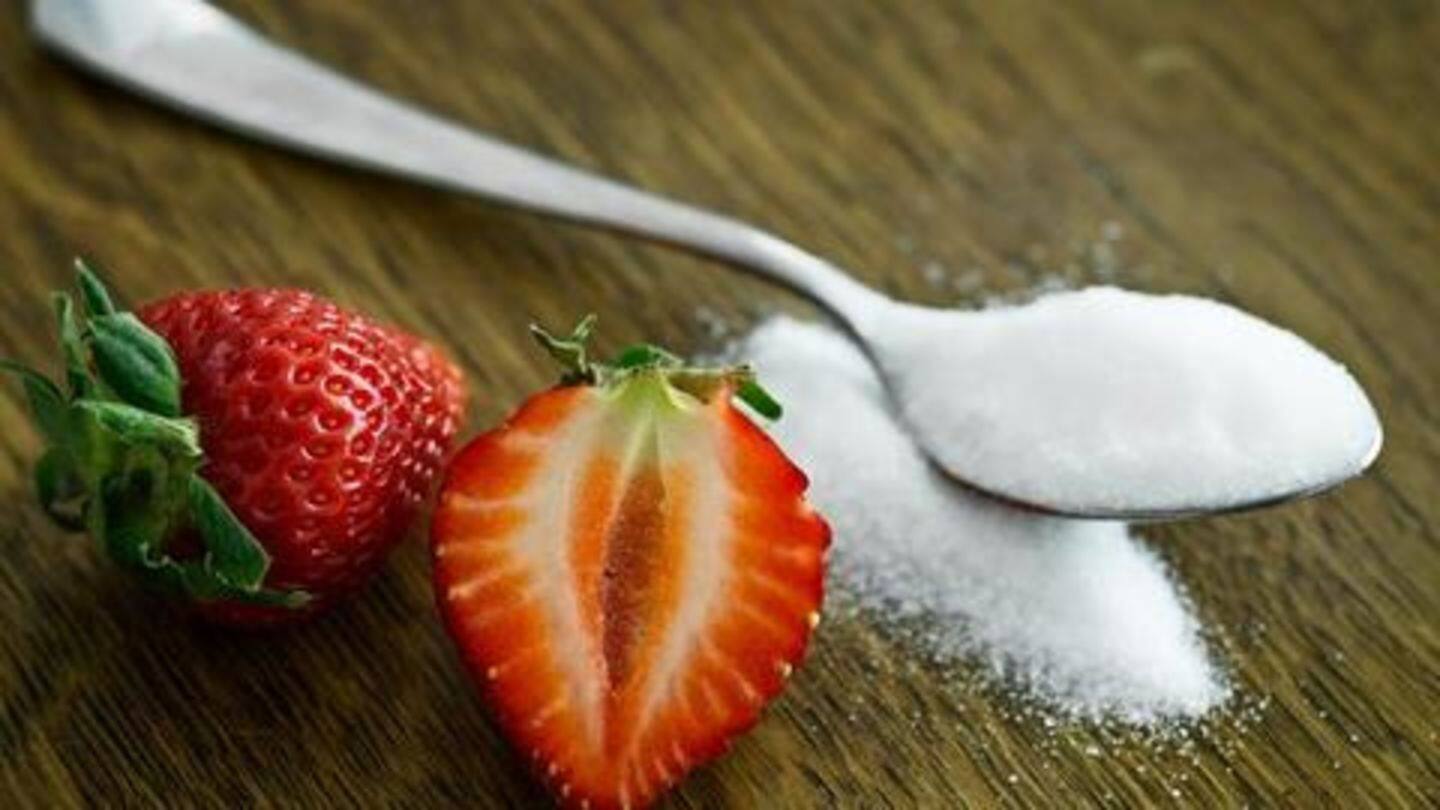
Five common myths about sugar, busted!
What's the story
Love it or hate it, but you cannot ignore it - sugar is one such ingredient that has earned a mixed reputation, at best. With various natural and processed foods containing different types and proportions of sugar, the confusion surrounding its consumption is rather natural. To help you stay safe, here we bust five common myths about sugar.
#1
Myth: Sugar is the main cause for diabetes
One of the most infamous myths about sugar intake is that it leads to diabetes. This misconception probably took shape because diabetics' blood-sugar levels are often out of control, and they have to manage their sugar consumption. However, there is no direct link between sugar consumption and development of diabetes. In actuality, diabetes is the result of an inactive lifestyle, poor diet and genetics.
#2
Myth: "Sugar-free" is better
If a certain food item is naturally free from sugar, then of course it is healthy for you. But it doesn't necessarily stand true for packaged products marketed as "sugar-free." This label implies that the product in question has been infused with artificial sweeteners to bring the sweet effect of sugar, which can actually do more harm than a moderate amount of natural sugars.
#3
Myth: Brown sugar is healthier to its white counterpart
The world has been far too unfair to food items that are white in shade. We have already largely shifted from white variants of breads and rice to their brown counterparts. However, this rule isn't necessarily applicable to sugar, since packaged commercial brown sugars have already had molasses added to them. So, stop being paranoid about having white sugar from now on.
#4
Myth: Fruit is bad as it contains too much sugar
Yes it's true that fruits contain a high level of a naturally occurring sugar called fructose. But unlike cookies and cakes, the high sugar level in fruit is offset by other key nutrients like soluble fiber that have anti-inflammatory properties and antioxidants, that can help minimize cholesterol and prevent other diseases. This insoluble fiber in fruit helps monitor the absorption of sugar in blood-stream.
Information
Myth #5: Sugar consumption leads to hyperactivity
No, this is just not true. Many studies have proved that sugar has nothing to do with one becoming hyperactive. In fact, it is the setting of such occasions where excessive sugar is mostly consumed (parties, events etc.) that has led to this misconception.